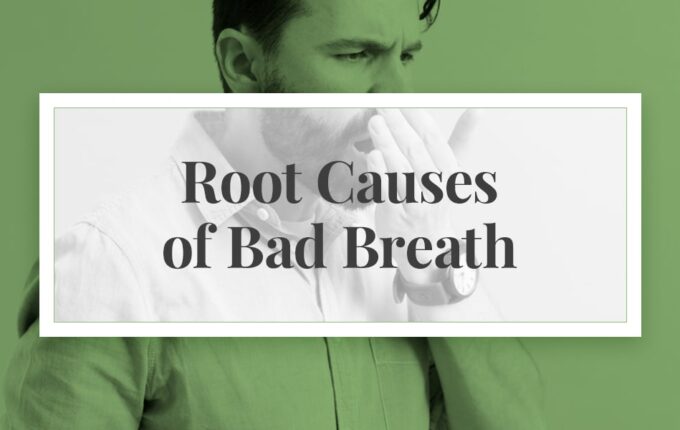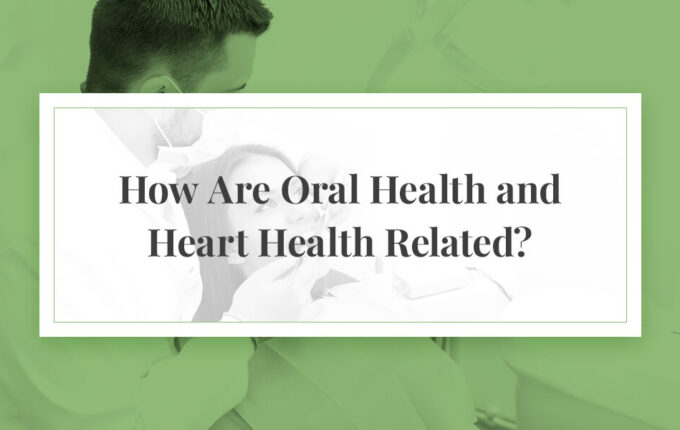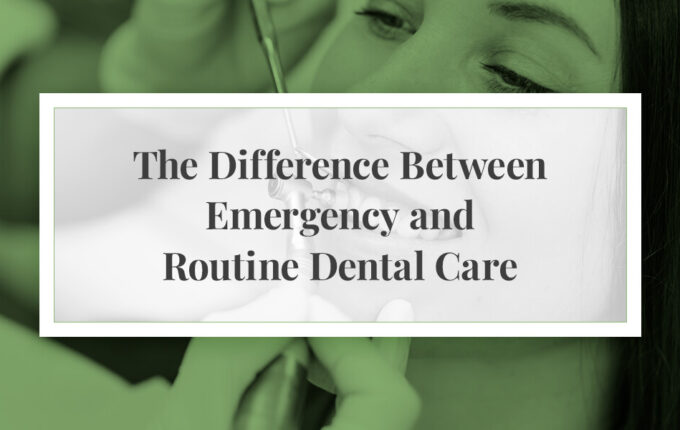The Link Between Mental Health and Oral Health
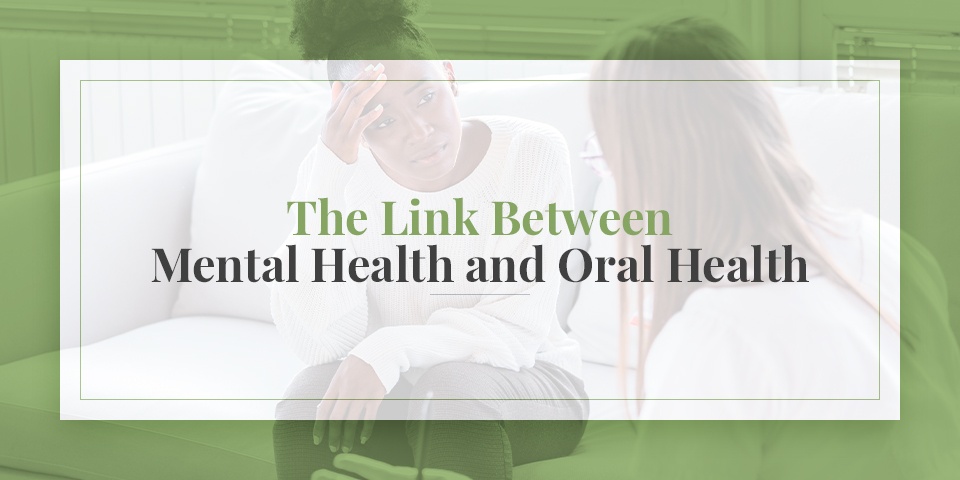
The systems of our bodies are interconnected. Often, when a person struggles with one aspect of their health, they also struggle with other aspects. For example, there appears to be a connection between heart health and oral health. There also appears to be a connection between mental health and oral health. People who have severe mental illness have nearly three times the risk of total tooth loss than the rest of the population.
Recognizing the connection between mental health concerns, such as depression, and dental health can help you take steps to protect your teeth and gums and preserve your overall well-being.
Are People With Poor Mental Health at a Higher Risk for Oral Health Problems?
Research has suggested people who experience mental illness, including anxiety, depression, schizophrenia, and eating disorders, have worse physical health than people who do not have a mental illness. This connection between mental health and physical health extends to oral health. People who have mental illness are more likely to have poorer oral health than those without mental illness. In some cases, the link between a person’s mental health and their mouth condition is due to the mental illness itself. In other instances, lifestyle and socioeconomic status play a significant role in affecting oral health in a person experiencing mental illness.
For example, people who have eating disorders, such as bulimia or anorexia, may be more likely to experience dental caries, or cavities. An eating disorder often contributes to nutritional deficiencies, which can affect the teeth’s strength and health. People who purge as a result of an eating disorder might also be more likely to experience enamel erosion due to the vomit’s acidity.
People experiencing mental illness can have comorbidities that affect their mental health. For example, it is common for people with depression or anxiety disorders to also misuse alcohol, smoke, or use illicit drugs. Consuming large amounts of alcohol or using tobacco products can contribute to enamel erosion and increase a person’s risk of developing oral cancers.
Treating a mental illness can also contribute to oral health issues. Some medications that treat psychosis or depression disrupt saliva production, leading to dry mouth, or xerostomia. People experiencing xerostomia can also develop cavities and gum disease.
People experiencing a mental disorder might also have financial constraints that prevent them from getting access to dental treatment and preventive care. If the mental illness interferes with a person’s ability to work, they might lose access to health and dental insurance and may not have the funds to pay for routine dental care or more extensive dental treatments.
The Cycle Between Mental Health and Oral Hygiene
The connection between mental health and oral health can be cyclical. A person experiencing a mental illness can begin to experience signs of illness in their mouth, such as gum disease, cavities, or bad breath. The oral health issues they experience can cause them to withdraw from the world around them. They might feel increased anxiety due to their mouth discomfort or experience a drop in self-confidence because of bad breath or tooth loss.
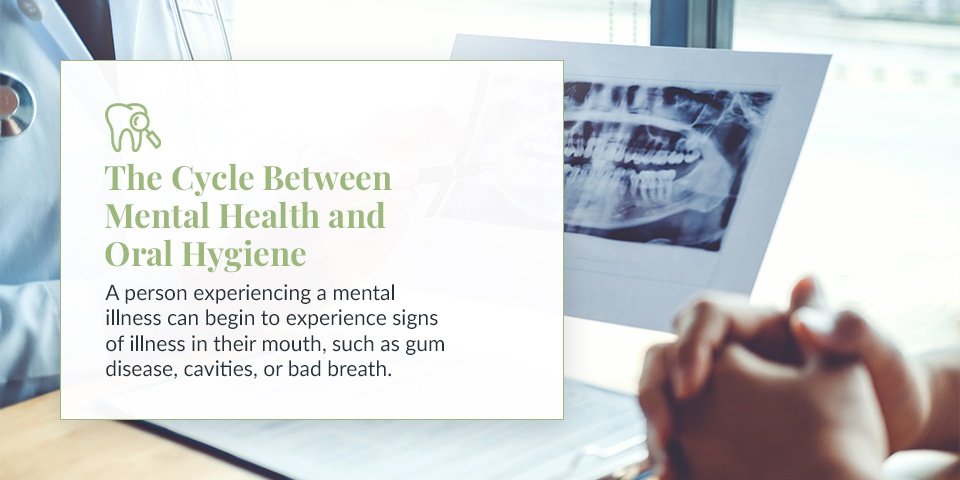
Anxiety about dental treatment, such as dental phobia, can contribute to poor oral health and adversely affect a person’s mental health. People can develop dental phobia for many reasons, ranging from a past unpleasant experience at a dental practice to a general fear of pain or discomfort. Without regular preventive dental care, a person can develop a range of oral health issues. They might feel shame and anxiety over the state of their mouth and continue to avoid the dentist. Dental avoidance can cause oral health issues to become worse, leading to possible diseases or problems in other areas of the body.
How Does Mental Health Affect Oral Health?
Mental illness can contribute to several issues inside the mouth, affecting the teeth and gums or putting a person at an increased risk of developing dental health issues. Take a closer look at the effects mental health can have on the mouth, gums, and teeth:
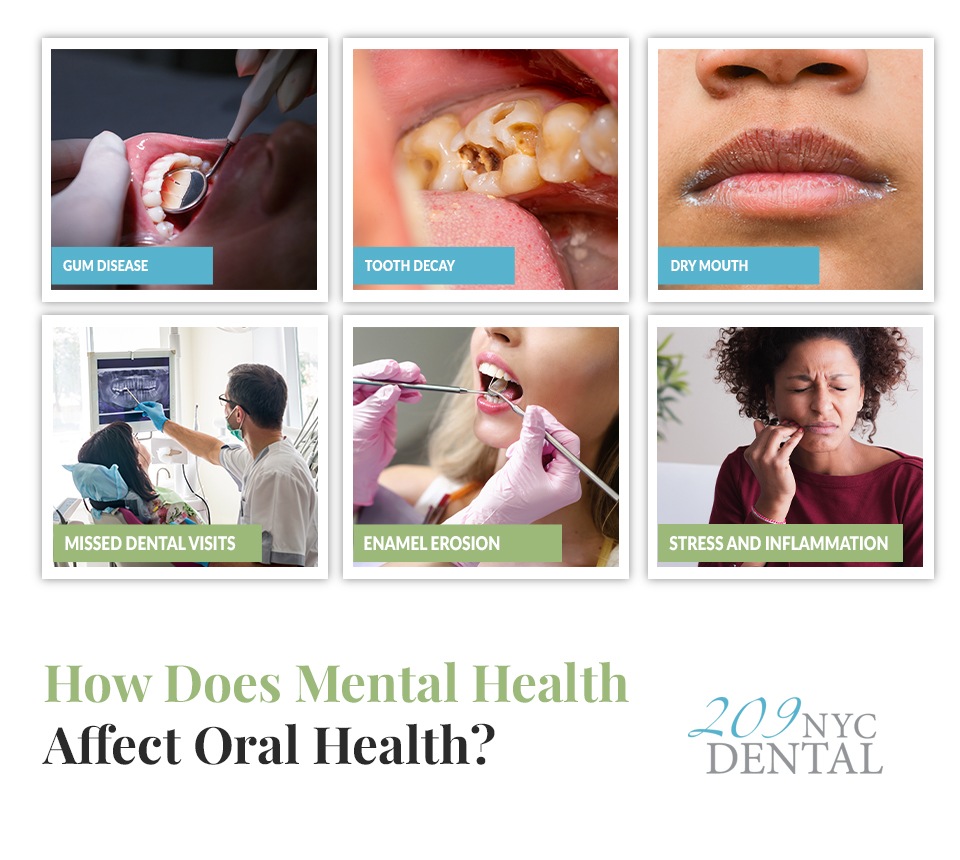
1. Gum Disease
Gum disease occurs when the tissue that holds the teeth in place becomes infected. Gum disease is also known as periodontal disease, and it occurs in stages.
The earliest stage is gingivitis, which usually results in irritated gums that bleed easily. Gingivitis is reversible if caught early enough. Without treatment, gum disease progresses to more advanced forms. In the later stage of periodontal disease, the gums pull away from the teeth, forming pockets and exposing the teeth’s roots. Bacteria, plaque, and food pieces can easily become trapped in the pockets, often causing bad breath. Exposure of the teeth’s roots causes damage to the teeth and bone.
Several factors lead to the development of gum disease. Poor oral hygiene, such as not brushing or flossing regularly, is a common cause of the disease. Without regular cleaning, plaque builds up on the teeth’s surface and gums. The plaque turns into tartar, further irritating the gums and causing inflammation and recession. Smoking is another factor that contributes to gum disease. For these reasons, people experiencing severe forms of mental illness are more likely to develop gum disease.
2. Tooth Decay
Tooth decay or cavities can develop when a person does not practice regular oral hygiene. Cavities form when a hole develops in the enamel of the tooth. Bacteria that usually live in the mouth consume sugar and produce acids that wear away the enamel. After eating or drinking, brushing the teeth removes the sugar and bacteria from the surface, reducing the risk of cavities or decay. When a person does not feel great mentally, they might neglect their usual oral hygiene habits or miss dental visits, putting them at an increased risk of developing cavities.
A person’s economic status can also be a risk factor for tooth decay and affected by their mental health. Someone who has lost their job because of mental illness may not be able to afford to see a dentist and might not have insurance protection. Cavities can be reversed if caught early enough or filled and treated in the earliest stages. Without preventive care, the decay can progress enough that a person loses the tooth.
3. Missed Dental Visits
People might skip or miss visits to their dentist for various reasons, among them financial concerns. Some people also experience anxiety or fear of going to the dentist. A study conducted by the American Dental Association found that 59% of adults did not seek dental care because of the cost, and 22% of adults avoided the dentist due to fear. In some cases, dental phobia can be connected to mental illness, such as anxiety.
As a person’s oral issues become worse, they might be more likely to avoid seeing the dentist. They might feel shame about not maintaining a regular preventive care schedule or have anxiety over their mouth condition and the cost of any treatments.
4. Enamel Erosion
Enamel erosion is not the same as tooth decay. While tooth decay develops due to exposure to bacteria, erosion occurs because a substance or pressure on the teeth causes the enamel to wear away. Certain mental illnesses can put a person at a higher risk of developing enamel erosion.
For example, bulimia can cause severe damage to the teeth. People who have bulimia often overeat during binges. They might consume acidic foods, such as sodas and citrus drinks, during a binge. After a binge, it is common for a person with bulimia to purge or force themselves to vomit. The vomit is also acidic and causes wear on the tooth enamel.
Anxiety can also contribute to enamel erosion, particularly if a person with anxiety grinds their teeth. Teeth grinding, or bruxism, puts pressure on the surface of the teeth and wears them down. Over time, the teeth can become cracked or chipped. Bruxism can also lead to jaw problems and might contribute to depression or sleep loss.
Although brushing the teeth is essential, it is possible to brush too hard, contributing to wear on the enamel and the gums. A person who is experiencing anxiety might brush with too much force, slowly wearing down their teeth.
5. Dry Mouth
People with dry mouth, or xerostomia, do not produce enough saliva. Dry mouth is a relatively common condition that can affect a person’s overall quality of life if it occurs continually. When there is not enough saliva in the mouth, bacteria and plaque do not get washed away, which increases the risk of cavities and gum disease. Dry mouth can also lead to sores in the mouth and increase the risk of infection.
Several factors can contribute to dry mouth. In some cases, it can be a symptom of a disease. In others, the medications a person takes to treat an illness can lead to dry mouth. Xerostomia is a common side effect of antidepressants, for instance. Depending on the cause of dry mouth, changing medications can be an option. Some people also get relief by giving up activities that make dry mouth worse, including smoking or drinking alcohol.
6. Stress and Inflammation
Mental illness can increase levels of stress in the body, which can increase inflammation. Ongoing high stress levels can also affect immunity, making it harder for the body to fight infection, such as gum disease, or slowing down the healing process.
When the body is stressed, it releases more of the hormone cortisol, which usually is anti-inflammatory. If cortisol levels remain elevated, the hormone loses its anti-inflammatory effects and the immune system begins to resist it. Elevated cortisol levels contribute to the inflammation that is associated with gum disease.
Dentistry and Mental Health: What You Can Do to Maintain Good Oral Hygiene
If you are dealing with mental illness, you can do several things to maintain your oral hygiene and protect your mouth, teeth, and gums from dental issues:
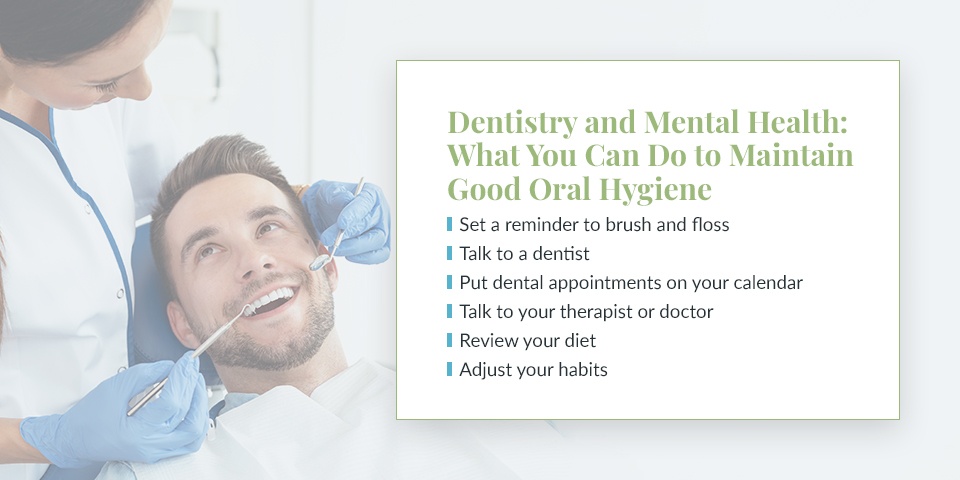
- Set a reminder to brush and floss: Good oral hygiene begins at home. If you have difficulty remembering to brush your teeth or floss, one way to develop the habit is to program a reminder for yourself. You can set a calendar reminder or a “to-do” on your phone. Set two reminders, one in the morning and one before you usually go to bed. When you get the notification, head to the bathroom to brush your teeth and floss right away.
- Talk to a dentist: If dental anxiety or phobia has kept you from scheduling an exam, one thing to do is schedule a consultation with a dentist. During the consultation, you can talk about the source of your anxiety and ask them questions about what happens during a typical appointment. Some dentists use certain techniques to help calm patients who are anxious about visiting the dentist.
- Put dental appointments on your calendar: Getting in the habit of scheduling your dental appointment in advance and setting a reminder for it can help you stick to a regular exam and cleaning schedule. If possible, book your next appointment before leaving the dentist’s office, so you do not have to remember to do it in several months.
- Talk to your therapist or doctor: Treating any mental illness you are experiencing can help you improve your oral health and hygiene. If depression or anxiety has kept you from brushing and flossing or has caused you to stay out of the dentist’s chair, reviewing your treatment options with a licensed therapist or psychiatrist can improve your mental, physical, and oral health.
- Review your diet: What you eat has a major effect on your oral health. If you drink plenty of soda or eat many starchy or sugary foods, you might have a higher risk of developing cavities than someone who does not eat or drink those things. Your doctor, therapist, and dentist can all be helpful resources if you are looking to improve your diet and oral health.
- Adjust your habits: Certain habits, such as smoking or drinking large amounts of alcohol, affect your oral hygiene and health. Smoking interferes with your immune system, contributes to gum disease, and can cause bad breath. Drinking excessive amounts of alcohol can dry out your mouth and increase the risk of cavities. If you want help quitting or adjusting habits that impact your oral health, your dentist, doctor, or therapist can assist.
Schedule an Appointment With 209 NYC Dental Today
If you are ready to improve your oral health, the dentists at 209 NYC Dental are here to help. Book an appointment with us online or give us a call at 212-355-2290 for a cleaning and exam, and learn more about what you can do to protect your teeth and gums.
 Our History
Our History
 Our Providers
Our Providers
 About Us
About Us
 Blog
Blog
 Contact us
Contact us
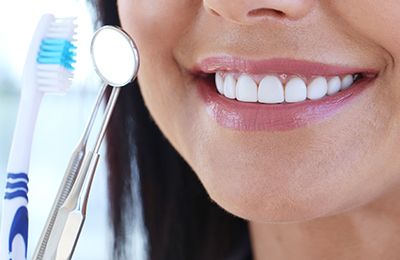 Diagnostic & Preventive
Diagnostic & Preventive
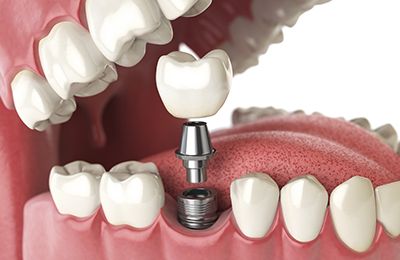 Implant Dentistry
Implant Dentistry
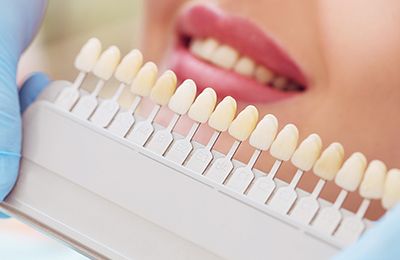 Cosmetic Dentistry
Cosmetic Dentistry
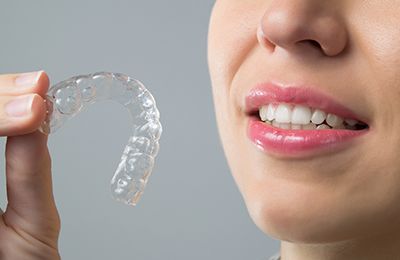 Clear Braces
Clear Braces
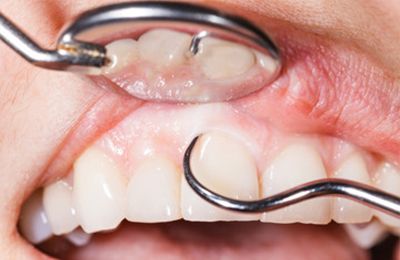 Periodontics
Periodontics
 Patient Forms
Patient Forms
 Payment Information
Payment Information
 Insurance Options
Insurance Options
 CareCredit Dental
CareCredit Dental
 Appointment Policy
Appointment Policy
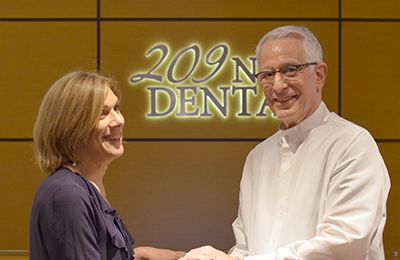 Free Consultation
Free Consultation
 Complimentary Teeth Whitening
Complimentary Teeth Whitening
 Teeth Whitening
Teeth Whitening

